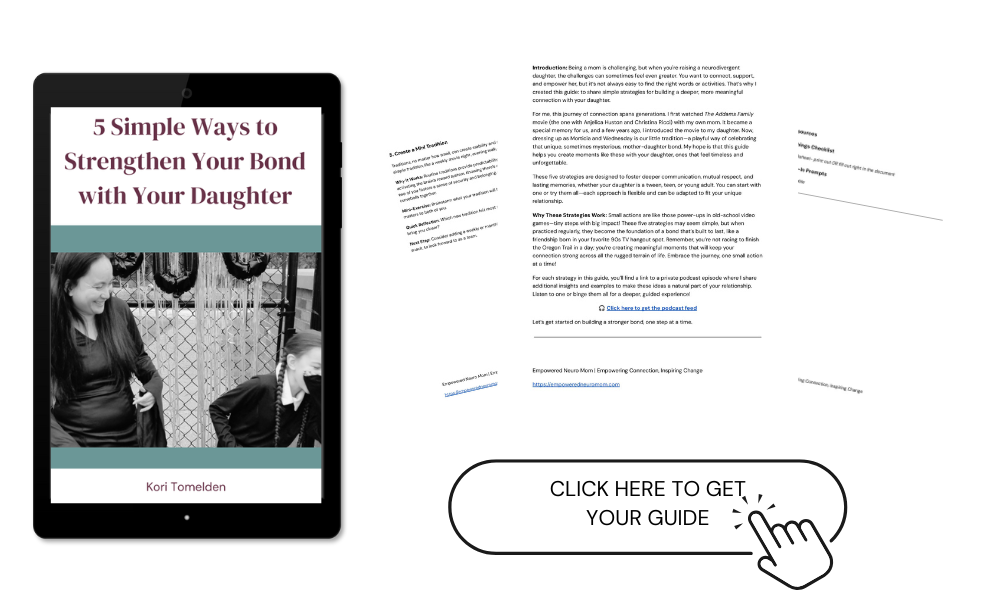“You don’t look autistic.” “You seem too high-functioning.” If you’re neurodivergent, you’ve probably heard comments like these more times than you can count. While some people may mean well, these words can cut deep, dismissing the complex reality of our lives. Today, I want to talk about moving beyond these limiting beliefs and embracing ourselves fully—quirks, challenges, and all. If you’ve ever felt pressured to conform or hide who you are, this post is for you.
The Harm of “You Don’t Look Autistic”
It may seem harmless, but telling someone they “don’t look autistic” can be deeply invalidating. People see only the surface and often fail to recognize the masking, self-regulation, and mental toll we go through just to fit in. These comments ignore the reality of our experiences and trigger feelings of self-doubt and imposter syndrome.
For years, I struggled with self-doubt. Even after my official diagnosis, the disbelief from others made me question myself. This constant masking and need to conform drained my energy and chipped away at my self-worth.
Societal Expectations: The Invisible Weight
Beyond dismissive comments, neurodivergent people face societal pressures that feel impossible to meet. As women and moms, we’re often expected to play specific roles, juggling motherhood, relationships, and work while appearing effortlessly “normal.” I spent years trying to live up to these ideals, measuring my worth based on how well I fit into society’s mold. The result? A loss of identity and a constant feeling of inadequacy.
Masking to meet these expectations isn’t just exhausting—it can lead us to forget who we truly are. We start identifying with the roles we play rather than our true selves, and the cost is too high.
Embracing Authenticity as a Neurodivergent Mom
Eventually, I reached a turning point. I was done trying to conform and hide who I was. I realized that true belonging doesn’t come from trying to fit in but from accepting ourselves fully. This self-acceptance became my foundation. For the first time, I started creating environments that honored my neurodivergence rather than trying to adapt to fit in.
- Building Self-Acceptance: Learn to accept every part of yourself—imperfections, quirks, and all. Belonging to yourself is the first step to true confidence and connection.
- Celebrating Your Strengths: Embrace what makes you unique, from hyperfocus to creativity, and let these traits shine.
- Connecting Authentically: By being real, I’ve built stronger connections with those who genuinely support me, letting go of the need for approval from those who don’t.
Navigating the Journey After Diagnosis
Receiving a formal diagnosis was a revelation—it explained so much about my life. But with that clarity came the challenge of navigating disbelief from others. I had to learn to trust my understanding of myself and not let others’ opinions define my truth. It’s a journey I’m still on, but I’m committed to showing up as my true self, embracing my neurodivergence without apology.
The Path Forward: Embracing Who We Are
The journey to self-acceptance is ongoing. Whether it’s dismissive comments or societal expectations, we can’t let these pressures define us. Real power lies in embracing who we are—neurodivergent, imperfect, and all. So if you’ve ever felt like you don’t belong, remember this: belonging starts with accepting yourself, and that’s more than enough.
Closing Thoughts:
Breaking free from the need to conform is one of the bravest steps you can take. Embrace your quirks, honor your neurodivergent traits, and know that you are enough just as you are. If you’re ready to dive deeper, check out my self-acceptance guide in the DIY product shop and use the code PODCAST for a 20% discount. Let’s keep showing up authentically in a world that wasn’t built for us, one step at a time.



Comments